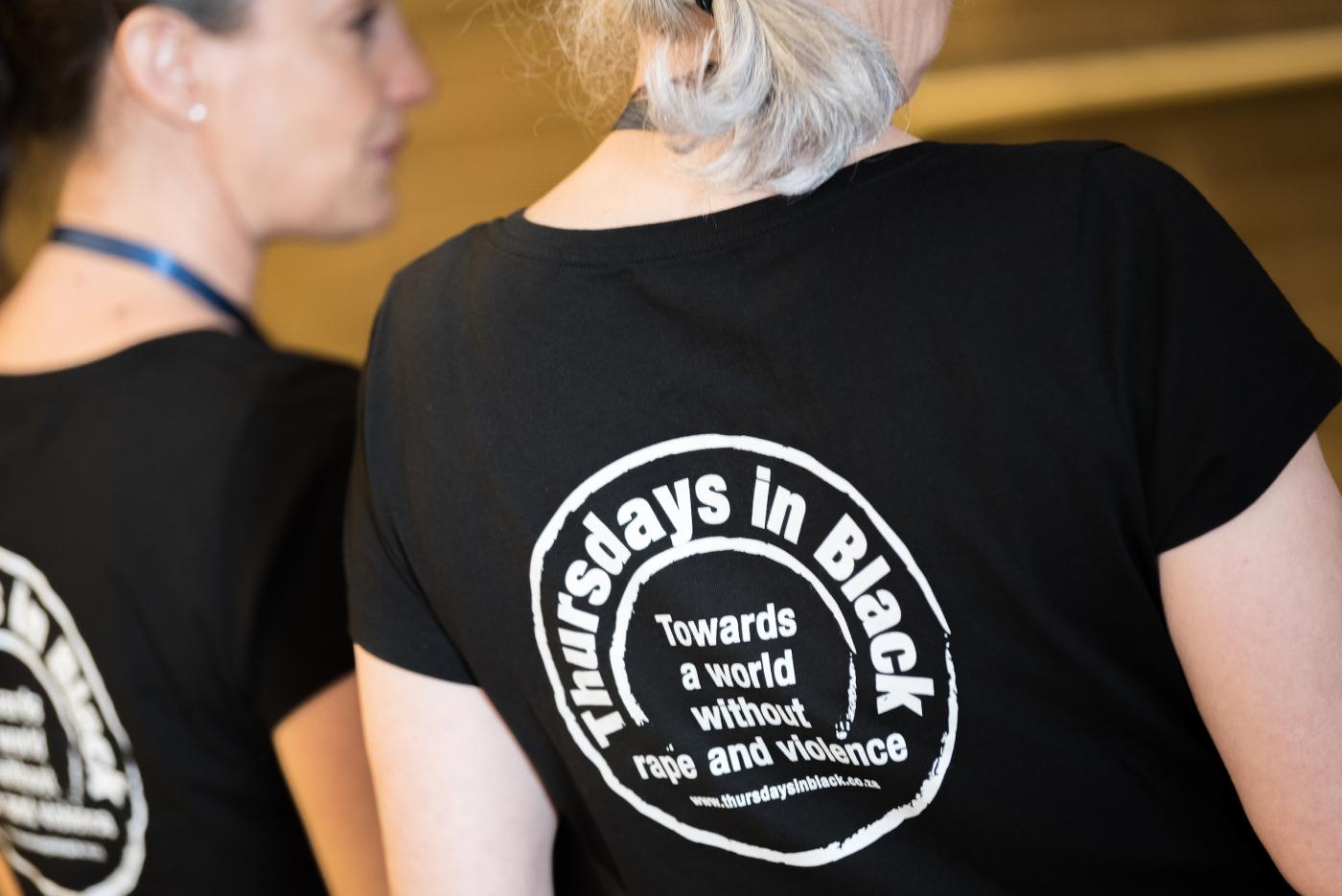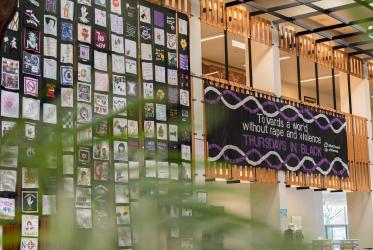While the #MeToo movement may have been trending on social networks in recent months, the World Council of Churches (WCC) has been speaking out against sexual abuse and other forms of violence against women for several decades.
The WCC is relaunching its “Thursdays in Black” campaign, urging women and men to join the movement and stand up against a culture that enables rape and sexual violence to take place.
The campaign was originally inspired by existing women’s groups, such as the Argentinean “Mothers of the Plaza de Mayo,” who stood outside the presidential palace in Buenos Aires every Thursday, demanding to know what happened to their children who “disappeared” under the former military dictatorship.
Or the “Women in Black” groups that started with silent protests in Israel and Palestine and then spread to other conflict countries, such as Rwanda during the genocide and Bosnia during the Balkans war.
Or before any of those, the Black Sash movement of white women protesting against the violence of apartheid policies in South Africa.
In the 1990s, the WCC held a Decade of Churches in Solidarity with Women, highlighting the efforts of those resisting all forms of gender violence, including the use of rape as a weapon of war.
Bishop Mary Ann Swenson is vice-moderator of the WCC’s Central Committee. She also serves as bishop in residence for her United Methodist Church in Hollywood, where the recent #MeToo movement took off.
She says that wearing black on Thursdays and sharing stories of women’s resistance and resilience are a vital part of the struggle to combat the culture of rape and violence. “It’s a step toward peace in our whole pilgrimage toward peace and justice,” she says, referring to the initiative, which emerged during the last WCC Assembly in South Korea in 2013.
Swenson says that over the past 70 years of the WCC there have been inspirational women who have stood up and spoken out about the problem, even though some of them have been targeted themselves in places where WCC meetings have taken place.
She believes that attitudes within Christian churches in the past have contributed to the problem, allowing some people “to use the Bible and treat women as property.”
But she adds that she is encouraged by changing attitudes in all faith communities, noting that in Los Angeles recently she took part in an interfaith encounter with Muslim, Jewish, Buddhist, Bahai, Sikh and Christian women and men speaking out against violence and about the need to help young men grow up with greater respect for women.
Bishop Swenson says that while professional women in Hollywood and beyond have been very vocal in denouncing violence, the WCC will continue to stand up for women in poverty who do not have a voice on the international stage. She says she has listened to “heart-breaking stories” of women who were beaten because they wanted to get an education, or others who were raped, yet still managed to tell their stories in order to help others become more resilient.
Violence can happen to women in all socio-economic categories, Swenson concludes, so working together on “how to protect ourselves, how to stay in community, how to find ways to help create a world that is a safe place for women is important for all of us.”
*Philippa Hitchen is a Vatican-based journalist.
Listen to the interview with Bishop Mary Ann Swenson








